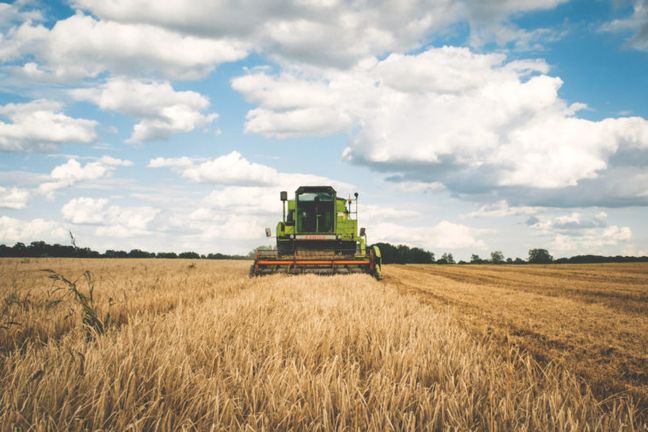The law is ever-evolving. Thought paradigms shift with an increased understanding of human dynamics and the introduction of new ideas. Washington law typically follows a more liberal-sided evolution of the law, often causing defense attorneys some degree of frustration. Washington law regulates minimum wage but also provides exemptions from the minimum wage requirement for some positions in various industries. The Minimum Wage Act of Washington was based on the Fair Labor Standards of 1938, which plaintiffs in Martinez-Cuevas v. DeRuyter Brothers Dairy, Inc., WL 6495500 (2020) claimed incorporated racist motivations underlying the federal statute. However, these motivations were unrelated to protecting the health and safety of workers, and health and safety protections are a fundamental right under article I, section 12 of the Washington Constitution and the equal protection clause.
In Martinez-Cuevas v. DeRuyter Brothers Dairy, Inc., Jose Martinez-Cuevas and Patricia Aguilar worked as milkers for DeRuyter. DeRuyter milkers used mechanized equipment to milk close to 3,000 cows per shift, 24 hours a day, three shifts a day, seven days a week. Martinez-Cuevas and Aguilar filed suit, along with approximately 300 fellow DeRuyter dairy workers, in 2016. They claimed DeRuyter failed to pay minimum wage to dairy workers, did not provide adequate rest and meal breaks, failed to compensate pre- and post-shift duties, and failed to pay overtime.
Settlement resolved all but the overtime pay claims. RCW 49.46.130(1) requires employers to compensate employees for work in excess of 40 hours. Subsection (2)(g) exempts certain employees, such as individuals employed on farms, from receiving this compensation.
Martinez-Cuevas and Aguilar moved for summary judgment, alleging class members generally worked over 40 hours per week without receiving overtime pay and labored in dangerous conditions. The workers argued the agricultural exemption for overtime pay violated article I, section 12 of the Washington State
Constitution because it granted a privilege or immunity to the agricultural industry pursuant to a law implicating a fundamental right of state citizenship—the right of all workers in dangerous industries to receive workplace health and safety protections. “No law shall be passed granting to any citizen, class of citizens, or corporation other than municipal, privileges or immunities which upon the same terms shall not equally belong to all citizens, or corporations.” (WASH. CONST. art. I, § 12.)
The Washington Supreme court performed an in-depth review and analysis of the Fourteenth Amendment. Drafted in 1866 by Congressman John Bingham of Ohio, the Fourteenth Amendment was intended to give Congress the power to “secure to the citizen of each State all the privileges and immunities of citizens of the United States in the several States,” and provide the power to “enforce the bill of rights as it stands in the Constitution today.” The purpose of the Fourteenth Amendment was to change the relationship between the states and federal government by providing a means of enforcing the Bill of Rights against the states. Unfortunately, the Supreme Court misinterpreted the Framers’ intent and introduced an antidiscrimination construction. The Washington Supreme Court found the federal antidiscrimination construction was no longer a helpful analogy in construing Washington’s article I, section 12, as the Supreme Court disavowed protection on the basis of race in favor of protection against discrimination based on state citizenship, as evidenced in the Slaughter-House Cases. Overwhelmingly, scholars agree Slaughter-House was decided contrary to the intent of the Fourteenth Amendment.
Whether RCW 49.46.130(2)(g) violated the privileges or immunities clause or equal protection, article I, section 12 of the Washington State Constitution was the clear issue demanding attention. RCW 49.46.130(2)(g) grants agricultural employers a privilege or immunity from providing overtime protections guaranteed to dairy workers under article II, section 35. Article II, section 35 states, “The legislature shall pass necessary laws for the protection of persons working in mines, factories and other employments dangerous to life or deleterious to health; and fix pains and penalties for the enforcement of the same.”
The Washington Supreme Court found the milkers are the type of workers protected by article II, section 35 because they worked long hours in conditions dangerous to life and deleterious to their health. DeRuyter milking facilities were operated around-the-clock in order to service 3,000 cows. DeRuyter’s employment policy required milkers to stay until all cows were milked and to help clean the barn, unless excused early. Martinez-Cuevas, Aguilar, and the class as a whole worked over 40 hours per week over 80 percent of the time they were employed by DeRuyter.
Dairy work is some of the most hazardous in the United States. The dairy industry injury rate in Washington was 121 percent higher than all other state industries in 2015. The Court found the extremely dangerous nature of dairy work entitled dairy workers to the statutory protection set out in article II, section 35, and held RCW 49.46.130(2)(g) implicated a fundamental right and granted a privilege or immunity. As such, the Court held RCW 49.46.130(2)(g) violated article I, section 12 as applied to dairy workers.
Takeaway
The Constitution of the United States and state Constitutions are living documents. The very words are open to interpretation. Typically, interpretation is correct, and the instituted law stands. However, when Constitutions and state laws differ from what the true intent of framers of said law may be, courts must step in, properly interpret, and lay new groundwork for evolving law moving forward.

 Cannabis Workers Allege Quota to Trim 4 Pounds a Day Violates the California Labor Code
Cannabis Workers Allege Quota to Trim 4 Pounds a Day Violates the California Labor Code
 The Ninth Circuit Reminds Us: Every Word Matters
The Ninth Circuit Reminds Us: Every Word Matters
 NO WAY, PRO SE! The Consequences of Abusing the Judicial System as a Pro Se Litigant in Colorado
NO WAY, PRO SE! The Consequences of Abusing the Judicial System as a Pro Se Litigant in Colorado
 Victim of Financial Mismanagement or Unlawful Retaliation? New Jersey City University Program Founder Claims School Retaliated After Reporting Alleged Sexual Harassment
Victim of Financial Mismanagement or Unlawful Retaliation? New Jersey City University Program Founder Claims School Retaliated After Reporting Alleged Sexual Harassment
 “Real Housewives” Gets a Reality Check
“Real Housewives” Gets a Reality Check
 Missing a Chapter: Insufficiency of Expert Deposition Testimony in Medical Malpractice Litigation
Missing a Chapter: Insufficiency of Expert Deposition Testimony in Medical Malpractice Litigation
 Crash Course: Why Summary Judgment Misses the Mark in Illinois Multi-Cause Limousine Crash Collision
Crash Course: Why Summary Judgment Misses the Mark in Illinois Multi-Cause Limousine Crash Collision
 Bitter Truths: Lead, Cadmium, and Defective Pleadings in California Chocolate Class Action
Bitter Truths: Lead, Cadmium, and Defective Pleadings in California Chocolate Class Action
 The Law of Unintended Consequences: Including Insurance Brokers in Litigation Strategy Communication May Waive the Attorney-Client Privilege
The Law of Unintended Consequences: Including Insurance Brokers in Litigation Strategy Communication May Waive the Attorney-Client Privilege
 Liability Waivers: A Cautionary Tale of the Inconspicuous Waiver
Liability Waivers: A Cautionary Tale of the Inconspicuous Waiver
 Whose Employee Are They Anyway?
Whose Employee Are They Anyway?
 One For the Landlords in Washington
One For the Landlords in Washington
 Covenant Judgments Can Be the Foundation of Bad Faith Claims
Covenant Judgments Can Be the Foundation of Bad Faith Claims
 Falling for Liquor: Washington Court Reaffirms Premises Liability Law
Falling for Liquor: Washington Court Reaffirms Premises Liability Law
 New Pathways to Recover for Intentional Inference with a Corpse in Washington
New Pathways to Recover for Intentional Inference with a Corpse in Washington
 When Washington Statute and The Constitution (Somewhat) Collide
When Washington Statute and The Constitution (Somewhat) Collide
 Opening the Wrong Doors
Opening the Wrong Doors